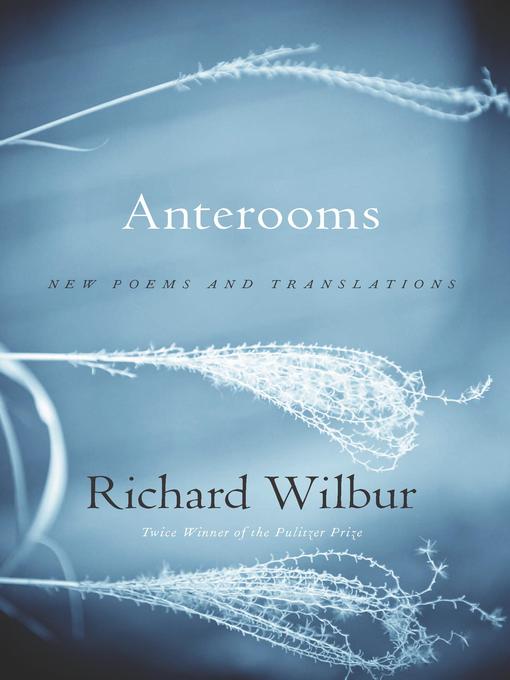
Anterooms
New Poems and Translations
کتاب های مرتبط
- اطلاعات
- نقد و بررسی
- دیدگاه کاربران
نقد و بررسی

October 25, 2010
Wilbur, who turns 90 next year, has stood for decades in the front rank of American poets who know how to use traditional forms: his confident rhymes and stanzas are second to none, their poise perhaps unsurpassed since Frost, and like Frost he can combine smooth popular appeal with a startling dark side. One of the best of the new poems, "Terza Rima," remembers a "dead/ Enemy soldier" in WWII whose corpse Wilbur struck with his jeep. Other new poems strive equably to describe the mixed emotions of later life: "Psalm" lauds "the stops of the sweet flute/ Or capering fife," but concludes by asking its musician "in grave relief/ Praise too our sorrows on the/ Cello of shared grief." As in most of his volumes, Wilbur mixes original verse with new translations: "Thirty-Seven Riddles from Symphosius" turns into triple-rhymed pentameter such Latin kennings as "I once was water, and soon shall be again" (i.e., ice). Wilbur, a former poet laureate and Pulitzer winner, has written verse for children, too, and he rounds out the volume with the latest in that line: "If carp is in your carport go find out/ Whether the living room is full of trout." This volume's gems measure up to Wilbur's high standards.

November 1, 2010
Former poet laureate and Pulitzer Prize winner Wilbur gives us poems that detail both the domestic and the mythic. In "The House," he writes, "What did she tell me of that house of hers?/ White gatepost; terrace; fanlight of the door." Wilbur often writes in tightly controlled tercets and quatrains. In the successful ones the rhyme is not forced and occasionally surprises, but sometimes the line endings go exactly where you'd predict, as in these two segments, "Hoping to wipe the slate/ Before it is too late" and "Therefore I call to mind/ All memories of the kind." In his nature poems, form and language wed and evoke feelings for the landscape that correspond to our human world, "This upstart thistle/ Is young and touchy; it is/ All barb and bristle." Comparing his life to that of a measuring worm, Wilbur writes with a sense of mortality, "Toward what undreamt condition/ Inch by inch I go." The translations include works by Mallarme, Verlaine (not before translated), Brodsky, and Horace. VERDICT Readers who like traditional poetry will enjoy this varied collection, which offers everything from house and orchard poems to 37 Latin riddles by Symphosius.--Doris Lynch, Monroe Cty. P.L., Bloomington, IN
Copyright 2010 Library Journal, LLC Used with permission.

























دیدگاه کاربران